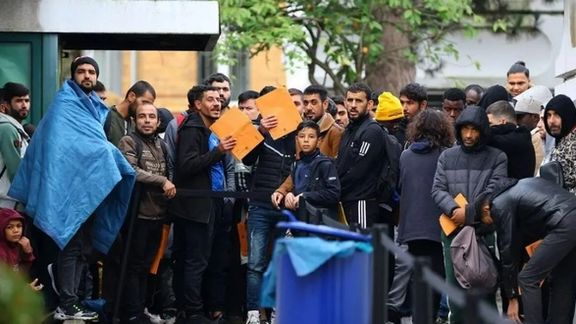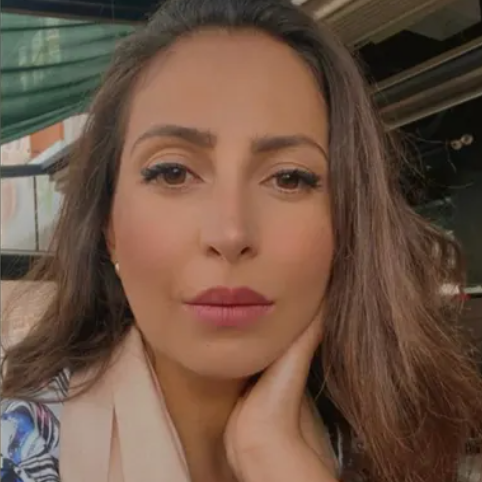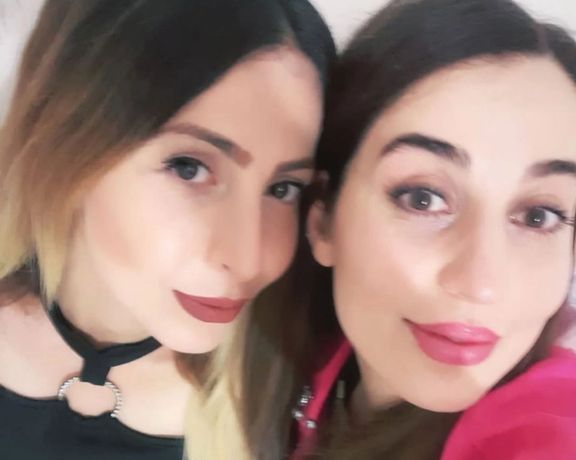Vulnerable Iranian refugees face mounting pressure in Turkey

Iranian refugees in Turkey are facing expulsion to parts unknown or a dreaded extradition back to Iran as rules around their presence changed after the United Nations handed over asylum responsibilities to Ankara.
Nahid Modarresi, an undocumented Iranian refugee who lives in hiding from Turkish authorities, is one among the tens of thousands of Iranian asylum-seekers whose fate hangs in the balance.
“I hide myself because I am too afraid to go outside," Nahid told Iran International.

Protected person status, a legal term under international law offering protection if host governments are unable, was granted to Nahid in 2018 by the United Nations High Commissioner for Refugees (UNHCR).
The Turkish Supreme Court recently revoked it, throwing her life into disarray.
Though there are no official statistics, at least 3,000 Iranians who once had been granted protected persons status have had it revoked by Ankara, a Turkey-based Iranian researcher who works with asylum seekers told Iran International, declining to be identified for safety reasons.
Nahid says she fled Iran in 2018 over her sexual orientation and has since publicly engaged in human rights activities aimed against the country's Islamic authorities.
“My life is in danger,” said Nahid. “If I get sent back to Iran, they will arrest me and maybe execute me.”
Homosexuality in Iran is punishable by death for men and by 100 lashes for women. On repeated offenses, women can be also executed.
Nahid gained prominence in the human rights community for public campaigning after her sister Elham Modarresi was imprisoned for taking part in the Woman, Life, Freedom protest movement that rocked Iran in 2022.
Elham was taken by security forces from the home she shared with her family to Kachooie Prison outside Tehran in 2022 and was tortured and denied medication for a genetic liver condition, she and Nahid told Iran International.
In 2023, Elham was released on bail and managed to escape to her sister in Turkey.

Nahid advocated to help move her sister to Canada where she successfully had a liver transplant that helped save her life, but Nahid herself was left behind.
"I am very worried for my sister. I am so scared for her," Elham told Iran International.
Iranian refugees vulnerable in Turkey
Now faced with the revocation of her protected persons status, Nahid is speaking out and making a plea for herself and all Iranian refugees.
“It’s not just me and my situation. It's all political fighters from Iran. We fight the Islamic Republic,” said Nahid.
Nahid’s legal counselor in Ontario Hooshang Lotfi has filed an application to bring her to Canada and found five people willing to sponsor her. Pleading her case to Canadian authorities, Lotfi says Nahid's time is running out.
UNHCR's departure
In September 2018, the United Nations High Commissioner for Refugees (UNHCR) ended registration and refugee status determination procedures in Turkey in what it described as a response to Ankara's improvement of its immigrant population registry and refugee status determination process.
The UNHCR's departure followed by a European Union-Turkey migration agreement has put Iranian refugees in a precarious position, said Behnam Daraeizadeh, a senior fellow at the Canada-based Centre for Human Rights in Iran (CHRI).
“It is a big challenge and unfortunately has led to more deportations for the individuals who have already been accepted by the UN."
Since the change, organizations like CHRI have reported that Turkish authorities stepped up efforts to detain and deport unregistered migrants.
“These activists face arbitrary detention, possible torture, sham convictions on national security charges, and years of prison if they are extradited back to Iran,” said CHRI Executive Director Hadi Ghaemi.
Sina Rostami, a 35-year-old Iranian in exile in Turkey described to Iran International the horrors of what he has faced for months at a Turkish deportation camp.
“The way they treat us here is like we’re not humans,” said Sina, a Woman, Life, Freedom protestor who faces deportation to Iran. Sina’s sleeping quarters that he shares with six people and the washrooms have no lights. Sina said he often has to wait 12 to 14 hours before he is permitted recreation outdoors.
The Turkish government has not responded to Iran International's request for comment on these allegations.
A hub for refugees
Turkey is the world's leading host of refugees and is a middle ground between conflict zones and Western countries where migrants seek better lives.
Daraeizadeh said the Turkish government lobbied the UN so it could have more control over asylum seekers in a setback to the asylum-seekers.
Since Iran provided political support to President Recep Tayyip Erdogan after a failed coup in 2016, many activists argue Turkey is not keen on sheltering Iranians political asylum seekers.
Despite the risks, Iranians continue to flee their homeland as security forces keep up a crackdown on dissidents.